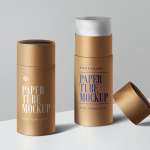Skip to content
Hand-PickedWeekly News
-
25+ Cool Skateboard Mockup Designs Ready for Photoshop
March 8, 2019 -
70+ Christmas Resources for Designers
December 20, 2022
Join OurNewsletter
Stay in touch by joining our weekly newsletter
Whoops, you're not connected to Mailchimp. You need to enter a valid Mailchimp API key.
This Month’s
Popular Posts
-
40+ Business Card PSD Templates for Photographers
January 11, 2018 -
25+ Cool Skateboard Mockup Designs Ready for Photoshop
March 8, 2019 -
70+ Christmas Resources for Designers
December 20, 2022 -
40+ Magnificent Paper Tube PSD Mockup Templates
February 4, 2021



